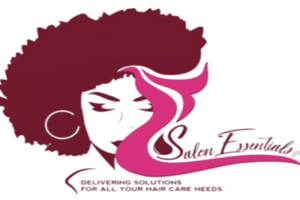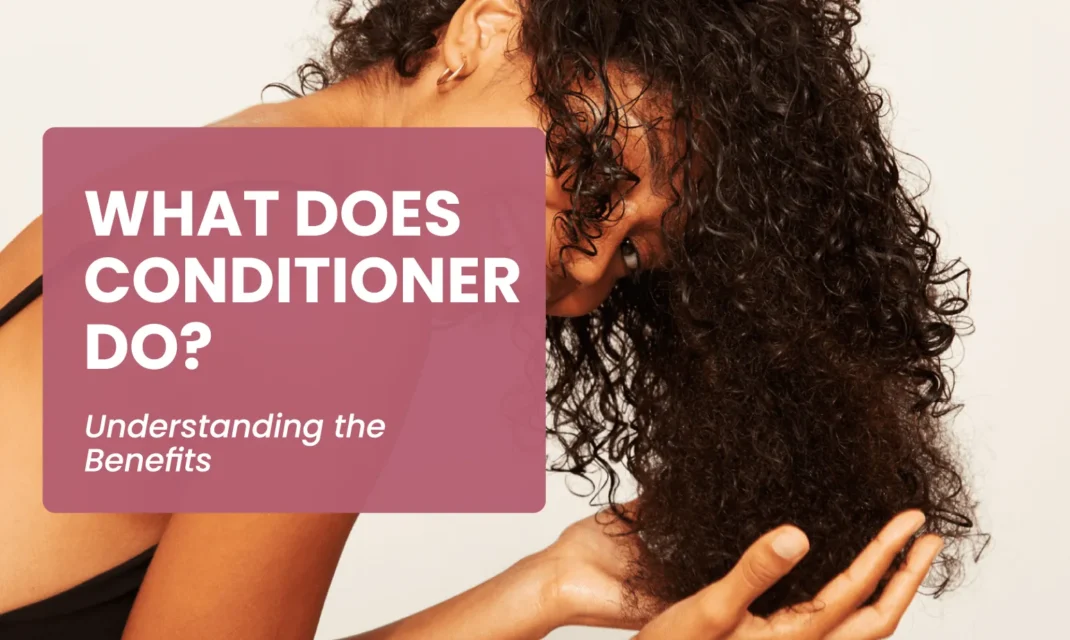Like shampoo, conditioner is perhaps one of the most well-known hair care products on the market. But have you ever wondered what hair conditioner does? Is it really necessary every time I wash my hair, or is it something I can skip?
The truth is that hair conditioner should be used by everyone, regardless of hair type or condition. If you want shiny healthy-looking hair that’s simple to style and manage on a daily basis, this is a step you shouldn’t neglect.
What Is Hair Conditioner?
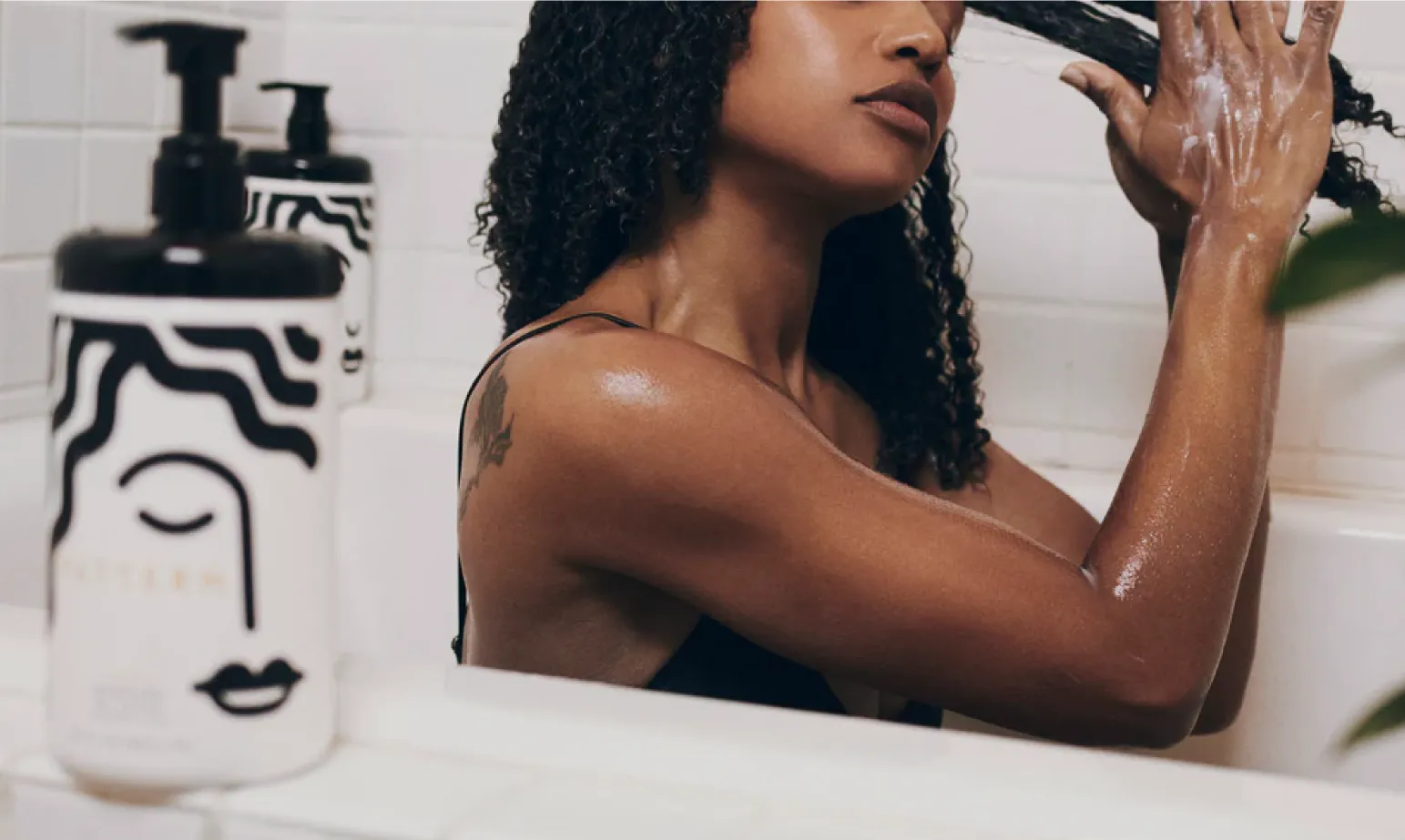
Conditioner is a conditioning or moisturizing substance that contains silicones, oils, and emollients, as well as surfactants that are cationic. When these components are mixed, they replace hair moisture that has been stripped away by shampooing.
There are some different kinds of hair conditioner we use regularly . These are:
- Rinse-out (or conventional) conditioner: Rinse-out conditioners are lighter cream formulas designed for daily use, providing hydration, a softer texture, and less friction between individual hair follicles. Most washers use a typical conditioner after shampooing and rinse it out after a few minutes.
- Deep conditioner: Deep conditioning is used to cure hair breakage (or to provide moisture). These rich solutions are typically applied to damp hair and left for 5-15 minutes to allow for maximum absorption.
- Leave-in Conditioner: As the name implies, leave-in conditioners should not be rinsed. These lightweight treatments detangle and hydrate hair without removing its protective properties.
What Does Conditioner Do to Your Hair?
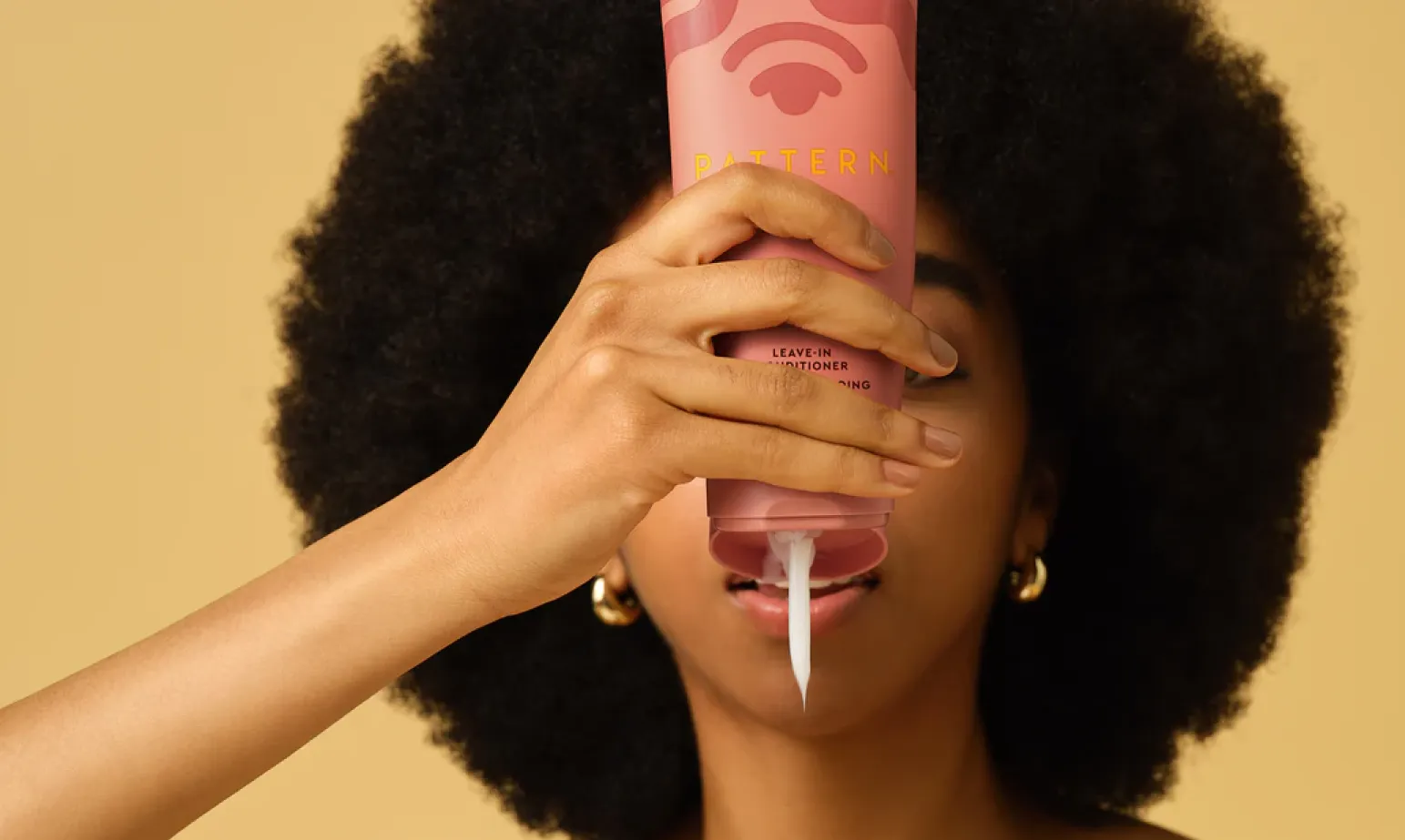
Conditioners function by using cationic surfactants, which are chemicals that have a positive electric charge. Human hair has a negative charge, therefore it attracts and links to the conditioner’s positive charge. This helps your hair absorb the conditioner’s other nutritious components, such as:
- Amino acids or hydrolyzed proteins
- Fatty alcohols
- Waxes
- Natural oils: jojoba, olive, grapeseed.
A conditioner softens, detangles, hydrates, and protects the hair from damage. It works by smoothing and hydrating the hair cuticles, which reduces tangling and makes it easier to comb and style.
Conditioners can also help heal damaged hair by supplying nutrients and proteins. This can improve the gloss and suppleness of your hair, making it less brittle. Use conditioner on a regular basis to keep your hair healthy, soft, and shining.
Is Hair Conditioner Necessary?
Conditioner is a must-have for most people’s grooming routines—and rightfully so! However, there are always some exceptions to the hair regulations.
Depending on your hair type, you may require more or less of the conditioner’s moisturizing properties. Conditioners, for example, may weigh down or deposit grease in very fine hair. On the other hand, coarse and tight coils (such as 4C hair) may require more moisture than a conventional conditioner.
Regardless, there is a conditioner that nourishes almost any hair texture. If ordinary conditioner does not fit your locks, try these techniques for different hair types:
- Rinse-out conditioners with little oil content are recommended for very fine hair.
- Coarse coils: Leave-in conditioners or hair products that have high oil content.
- Heat-damaged hair: Deep conditioners with keratin and proteins.
- Color-treated hair – Sulfate-free conditioners with phytantriol and oils
- Thin hair – Lightweight rinse-out conditioners with peptides and amino acids
Benefits of Using Hair Conditioner
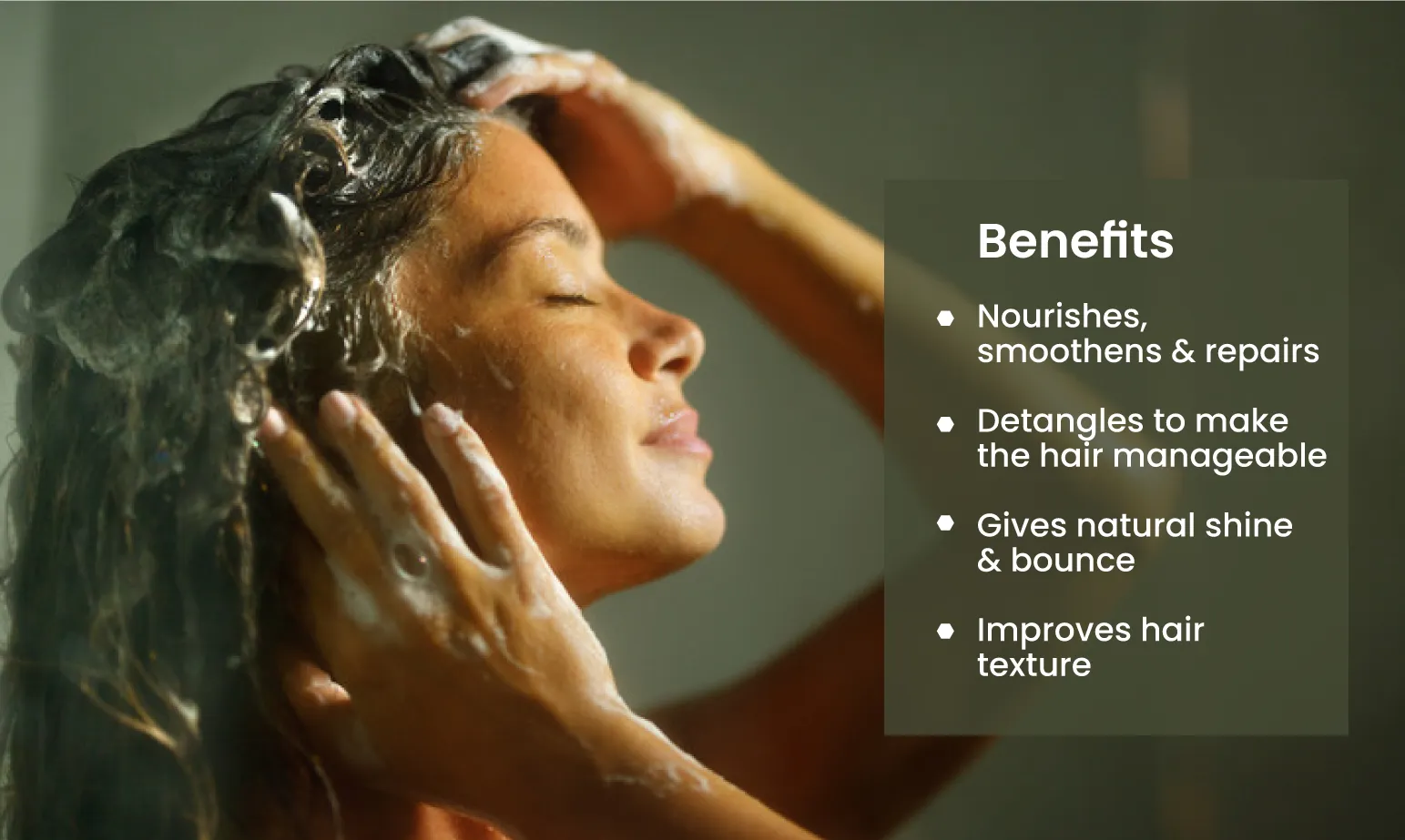
Weather, regular style, and daily wear and tear can all cause hair damage. Shampoo by itself cannot hold the ground. Though it is intended to clean your scalp, hair, and sebum build-up, you also require something potent yet mild to restore the moisture and natural oils taken from your hair. Here’s where the conditioner comes in.
- Everything your hair goes through on a regular basis affects its cuticles, causing them to eventually break. The conditioner provides a protective covering, minimizes breakage, and encourages hair development.
- Another big advantage of using conditioner is that it moisturizes your hair, making it silky and smooth, reducing frizz and adding shine to your tresses.
How Conditioner Affects Different Hair Types
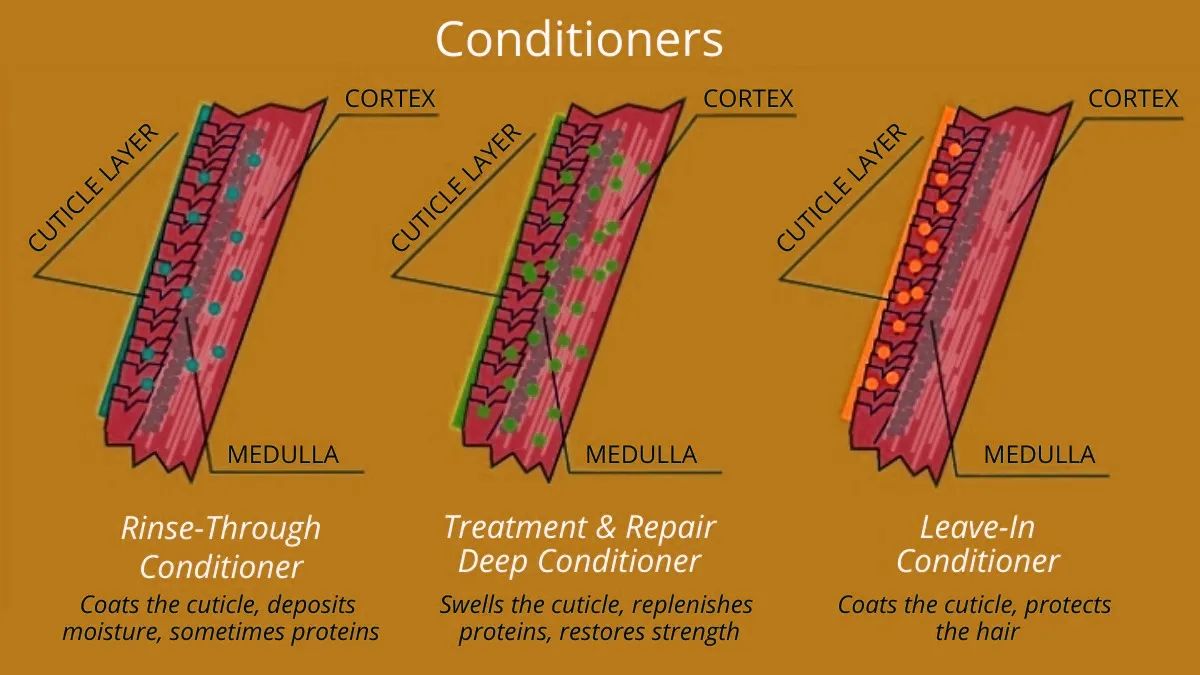
For curly hair, conditioner is essential for maintaining moisture and preventing dryness, as curly hair often struggles to retain natural oils. It also helps in detangling curls and controlling frizz, which enhances curl definition and reduces breakage. To get the best results, use a rich, moisturizing conditioner and consider incorporating deep conditioning treatments regularly. Be mindful not to overuse conditioners, as too much can weigh down curls.
In straight hair, conditioner primarily contributes to smoothness and shine by smoothing the cuticle layer and reducing tangling. This makes the hair easier to manage and style, and helps in minimizing breakage. For straight hair, it’s best to choose lightweight conditioners that won’t leave residue or weigh the hair down. Apply conditioner sparingly, focusing on the ends rather than the roots, and adjust usage frequency based on the hair’s oiliness or dryness.
For black hair, conditioner is vital for delivering intense moisture and combating dryness. It also improves manageability, making it easier to detangle and style, and enhances curl definition for those with natural curls or coils. Opt for rich, hydrating conditioners with ingredients like coconut or argan oil, and use deep conditioning treatments regularly. Avoid sulfates to prevent stripping natural oils and causing further dryness.
In the case of locs, conditioner helps to maintain moisture balance and supports scalp health by alleviating itchiness. It also plays a role in preventing buildup, provided it is used appropriately. Choose lightweight, non-greasy conditioners to avoid residue, apply sparingly focusing on the scalp and inside of the locs, and ensure thorough rinsing to prevent buildup. Regular clarifying treatments can help manage any residual product accumulation.
What Does Conditioner Do to Your Scalp?
Conditioners can empower your scalp health by increasing moisture and reducing dryness or itchiness. It helps to hydrate the scalp, which can soothe irritation and maintain a balanced environment for healthy hair growth.
For optimal scalp care, select conditioners that are gentle, hydrating, and free of harsh ingredients like sulfates or parabens. Look for products with soothing ingredients such as aloe vera, tea tree oil, or chamomile. Visit Salon Essentials to get original and qualityful hair products.
Conclusion
Conditioner is a game-changer in your hair care routine, and it’s essential for keeping your hair looking and feeling their best. It tackles everything from adding moisture and reducing frizz to boosting shine and manageability. No matter if your hair is curly, straight, or somewhere in between, using the right conditioner can truly make a difference.
So, now that you know how important conditioner is, why not up your hair care game? Don’t just grab any bottle—find one that’s perfect for your hair’s unique needs.
For top-notch conditioners and any other hair care products, check out Salon Essentials. Treat your hair to the care it deserves and see the transformation.
